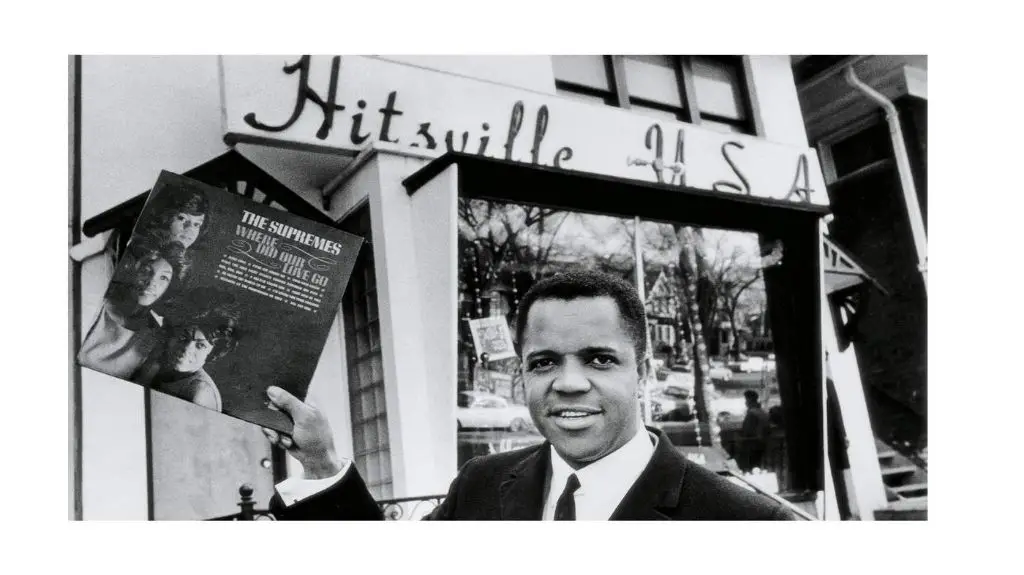How Did Robert Gordon Make His Money?
Early Life and Education
Robert Gordon was born on March 29, 1947 in Bethesda, Maryland. His middle class Jewish family provided him with a comfortable upbringing. Gordon’s father Samuel worked as an administrative law judge while his mother Arlene was a homemaker. From an early age, Gordon demonstrated a deep interest in music, especially rockabilly and country genres.
Gordon received his primary and secondary education in the public school system of Bethesda. As a teenager, he started singing and playing guitar, showing great promise. After graduating from high school in 1965, Gordon briefly attended the University of Maryland before dropping out to pursue his passion for music full time.
Early Career
After graduating from North Texas State University in 1962, Gordon began his professional career as a high school teacher in Dallas, Texas. During this time, he taught social studies and developed strong skills in research, writing, public speaking, and working with young people. Gordon was known as an engaging and dynamic teacher who brought energy and passion to the classroom.
In 1965, Gordon left teaching and took a position at KBOX radio in Dallas as a DJ and music program director. He honed his knack for connecting with audiences through his charismatic on-air personality. Gordon had a deep knowledge of 1950s rock and roll and rhythm and blues music, which he leveraged to create popular music segments. This early media experience helped establish Gordon’s broadcasting voice and platform.
Gordon’s talent for selecting hit music that resonated with listeners led to him being hired in 1968 by Motown Records as a regional promotions manager. Based in New Orleans, he promoted Motown releases, coordinated tours for Motown artists, and forged relationships with radio stations and distributors. This high-profile role at the peak of Motown’s popularity expanded Gordon’s industry network and reputation.

By 1970, Gordon had gained over a decade of eclectic experience in education, media, artist management, and promotions. These roles allowed him to cultivate his communication abilities and knowledge across disciplines, which would serve as the foundation for his future career accomplishments.
Developing Economics Expertise
Gordon focused much of his academic career on researching macroeconomics, the study of the economy as a whole. He produced influential research in several major areas including unemployment, inflation, productivity growth, and business cycles.
As a research associate at the National Bureau of Economic Research (NBER), Gordon authored over 125 academic papers on macroeconomic trends and theories. His research delved into topics like analyzing the slowdown in productivity growth starting in the 1970s, examining sources of inflation in the US, and studying the impact of unemployment on the economy.
Some of Gordon’s most impactful publications include The Measurement of Durable Goods Prices (1990), which examined biases in measuring inflation, and The Time-Varying NAIRU and its Implications for Economic Policy (1997), which analyzed the non-accelerating inflation rate of unemployment (NAIRU).
For his significant contributions to the field of macroeconomics, Gordon received numerous accolades including fellowships from the Econometric Society and American Academy of Arts and Sciences. In 2000, he was awarded the Distinguished Fellow title from the American Economic Association.
Joining Northwestern University
In 1973, Gordon joined the faculty at Northwestern University as a professor in the Department of Economics. According to the Northwestern University website, Gordon has served in several roles over his decades-long career there, including as the Stanley G. Harris Professor in the Social Sciences and as a faculty fellow with the university’s Institute for Policy Research (IPR) [1].
At Northwestern, Gordon’s research has focused on macroeconomics, including analyzing unemployment, inflation, productivity growth, and living standards. He has authored numerous influential papers and books looking at the drivers behind long-term economic growth in the United States and other advanced economies [2].
Influential Economic Analysis
Gordon is best known for his influential research on economic growth, which examines historical growth patterns and productivity trends to predict future US economic expansion. His most notable work is the 2016 book The Rise and Fall of American Growth: The U.S. Standard of Living Since the Civil War (Princeton University Press), which grew out of a 2012 paper Gordon published titled Is U.S. Economic Growth Over? Faltering Innovation Confronts the Six Headwinds.
In these works, Gordon argues that the rapid economic growth the United States experienced between 1870 and 1970 is unlikely to be repeated due to declining innovation and six “headwinds” impeding growth, including demographics, education, inequality, globalization, energy/environment, and the overhang of consumer and government debt. He predicts U.S. per capita growth will fall to just 0.2% per year for the foreseeable future, down from 2.5% in earlier periods.
Gordon’s productivity studies represented a major challenge to the conventional wisdom that technological innovation will sustain high economic growth. His work sparked significant debate among economists and policymakers. While some experts strongly disagreed with his conclusions, his historical analysis of the factors driving growth has been impactful in the field of economics.
Advising Policymakers
Gordon became known as an influential economic advisor to policymakers, lending his expertise to help shape fiscal and monetary policies. He consulted for government agencies including the Federal Reserve, the Congressional Budget Office, and the Department of Labor under the Clinton administration. In 2009, Gordon was appointed to President Obama’s Council of Economic Advisers, where he provided analysis on macroeconomic trends and the impacts of policy proposals.
As a member of the Council, Gordon advocated fiscal stimulus during the Great Recession to boost economic growth. He also analyzed the efficacy of quantitative easing by the Federal Reserve. In his advisory roles, Gordon aimed to translate economic research into actionable guidance for policymakers. His insights helped inform decisions on critical issues like unemployment, inflation, government spending, and financial regulation.
Media Commentary and Public Image
Robert Gordon’s economic expertise brought him into the media spotlight as an influential and frequently interviewed economist. He became known for his penetrating economic analysis and commentary for audiences beyond academia. In the 2000s, Gordon made frequent appearances providing analysis on programs including PBS NewsHour, Charlie Rose, and Bloomberg TV. His perspective on macroeconomic trends, productivity, inflation, and employment resonated with the public and cemented his reputation as an astute commentator.
Gordon also authored op-eds and columns for major publications including The Wall Street Journal and The New York Times. He brought rigorous economic analysis to contemporary debates, often taking contrarian views. Gordon’s willingness to make bold predictions and challenge assumptions further raised his profile as an independent voice. He became known for his skepticism regarding techno-optimism and the productivity potential of the digital revolution. This distinctive perspective brought Gordon additional visibility.
Through frequent media appearances and commentary, Gordon emerged as one of the most recognizable and influential public economists of his era. His cogent analysis and thoughtful critiques of policy solidifed his reputation as an expert worthy of attention from audiences within and beyond academia.
Investment Strategy
Robert Gordon applied his expertise in economics to develop a prudent investment approach focused on asset allocation and diversification (Robert Gordon & Associates, Inc: Home). He built a substantial portfolio of stocks, bonds, real estate, and alternative investments to generate steady returns over the long-term (Robert Gordon & Associates, Inc. Our Team). Gordon’s fee-only planning firm helped clients develop financial plans and invest their assets wisely (Robert Gordon & Associates, Inc: Home).
Though private about his specific holdings, Gordon accumulated significant wealth through savvy investments and his successful planning firm. He leveraged his reputation as an economist to attract high net worth clients and charge ongoing fees to manage their portfolios (Robert Gordon – Advisers Investment Trust). Gordon’s expertise in modeling economic trends allowed him to make strategic allocations ahead of market shifts. His long career as an advisor enabled him to steadily build assets under management.
Overall, Robert Gordon utilized his economics background and values of prudence and diversification to accumulate substantial wealth for himself and clients. Through patient investing and avoiding major risks, he grew his net worth and left a legacy as a trusted financial planner.
Philanthropy and Public Service
In his later years, Gordon dedicated much of his time and wealth to philanthropy and public service. He and his wife Ida established the Ida and Robert Gordon Family Foundation in 1986 to support causes related to sustainable food systems and climate change.
The foundation has donated over $9 million to nonprofits focused on sustainable agriculture, food access, nutrition education, and environmental stewardship. Some of the major grantees include Growing Power, Groundwork USA, and MEANS Database.
In Chicago, the Gordons funded urban agriculture projects to increase access to healthy food in underserved neighborhoods. They also supported research on climate resilient crops at universities like UC Davis and Cornell. Through their philanthropy, the Gordons aimed to create systemic change and address social inequities.
In addition to their foundation, Gordon served on the boards of nonprofit organizations like the Field Museum of Natural History in Chicago. He gave back to the community not only through financial contributions but also by volunteering his time and expertise.
Legacy and Impact
Gordon left a significant legacy in the field of economics through his groundbreaking analysis of economic growth. His work challenged long-held assumptions about continued exponential growth and sparked debate about the future trajectory of the U.S. and global economies.
Gordon’s most influential work was his 2012 paper “Is U.S. Economic Growth Over?” published by the National Bureau of Economic Research. He argued that the rapid advancement seen in the first half of the 20th century was a unique historical phenomenon driven by one-time innovations that are not replicable. This paper had an enormous impact and was cited by over 1700 other academic papers (https://www.nber.org/system/files/working_papers/w18315/w18315.pdf).
His theories questioned the viability of endless growth and led many economists to adjust their models and forecasts. Even among those who disagreed, his work shaped discussions about innovation, productivity, and long-term economic trends. Gordon’s ideas will continue sparking debate around growth theories for decades to come.
His influential book “The Rise and Fall of American Growth” further developed his thesis and cemented his reputation as an authority on the history of economic growth. Gordon earned numerous honors over his career, including fellowships at the Econometric Society and American Academy of Arts and Sciences.





